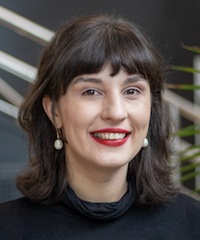We are now the Binghamton Center of Complex Systems (CoCo). With the addition of world-class new members, we will further advance the science of complex systems to address various real-world problems.

We are now the Binghamton Center of Complex Systems (CoCo). With the addition of world-class new members, we will further advance the science of complex systems to address various real-world problems.
In The News
2025 BU Research Magazine
2024 BingU News (2)
2025 BingU News (2)
2025 The Debrief
2025 ScienMag
2025 BingU News (1)
More...
2024 PsyPost
2024 MedBound Times
2024 BingU News (1)
2023 BU Library News
2023 BingU News
2021 PsyPost
2021 Cornell Blog
2021 RI Christmas Lectures
2020 BingU News
2020 Science Daily
2019 AI with AI
2018 BingU News 1, 2
2018 BU Pipe Dream 1, 2
2017 SoM Magazine
2017 BingU News
2016 BU Magazine
2015 BU Discover-e
2015 BU Pipe Dream
2009 BU Research Magazine
What Is CoCo?
CoCo is an interdisciplinary Organized Research Center (ORC) at Binghamton University that studies the collective dynamics of various types of interacting agents as complex systems. Its goals are to:
CoCo is also the hosting organization of the US Northeast Chapter of the Complex Systems Society.
There is an email list run by CoCo for general discussions on complex systems. To subscribe, please contact Hiroki Sayama.
CoCo CRISPIE, a student group of CoCo, has launched in Spring 2023!! Check out their website.
Take a look at our CoCo brochure here.
You can support CoCo's research and educational activities by making donations! See more details.
Get your CoCo merch at our RedBubble online shop! (No profit would come to CoCo; they are just for fun)
What Are Complex Systems?
Complex systems are networks of many components with nonlinear interactions which arise and evolve through self-organization, such that the system is neither completely regular nor completely random, permitting the development of emergent behavior. These properties can be found in many real-world systems, such as gene regulatory networks in a cell, physiological systems, brains and other neural systems, food webs, stock markets, the Internet, and social networking systems. We study their structural/dynamical properties to obtain general, cross-disciplinary implications and applications.
Social/Organizational Dynamics: The utilization and extension of agent-based modeling, evolutionary theory, game theory, and network theory to model, analyze and improve the behaviors of social and organizational systems. Current research topics include agent-based modeling of groups, collectives, societies and economies; experimental studies of leadership, team performance and organizational decision making; and evolution of cooperative/competitive strategies and collective actions in society.
Network Science: The utilization and extension of network science to explore the connectivity between elements, growth and self-organization, and dynamical evolution of various complex networks. Current research topics include modeling of epidemic dynamics in multilayer social networks; developing novel network modeling and analysis tools such as effective graphs, adaptive networks and higher-order networks; and application of network science to biological, biomedical and psychological/psychiatric data.
AI/Machine Learning/Artificial Life: The exploration of novel approaches to autonomous, intelligent, adaptive artificial systems using bioinspired methodologies. Current research topics include complex dynamics of random Boolean networks; representation learning in AI/ML; application of AI/ML to healthcare; morphogenetic swarm systems; and open-ended evolution and creativity of artificial systems.
CoCo Seminar Series
CoCo Seminar Series: Fall 2025 Schedule Flyer
To receive credit for participation in this seminar series, current on-campus students can self-register for SSIE 524A or 524B Graduate Seminar in Complex Systems Science online via BU Brain. Distance learners wishing to register for credit are also welcome to participate online and can contact EngiNet or the School of SSIE for registration support.

September 17, 2025
New Gatekeepers: News Source Citation Patterns in AI-Powered Search
Dr. Kai-Cheng Yang

October 1, 2025
Governance as a Complex, Networked, Democratic, Satisfiability Problem
Dr. Juniper Lovato

October 15, 2025
Systems Modeling and Analysis for a Sustainable Material Future
Dr. Sidi Deng
Engineering Design Division, Binghamton University
[Flyer]
[Video]

October 29, 2025 (at 10:00am)
Towards an Understanding of Scientific Disagreement
Dr. Dakota Murray
Information Science and Technology, University at Albany
[Flyer]
[Video]

October 30, 2025
Nonlinear Dynamics of Beliefs over Social Networks
Dr. Anastasia Bizyaeva
Mechanical and Aerospace Engineering, Cornell University
[Flyer]
[Video]

November 5, 2025
Emotion Contagion Amongst a Team Through Emotion Management: An Agent-Based Approach
Yeunkyung Cho1 and Sarah Escotto Rodriguez2
1 Management, Binghamton University
2 Systems Science and Industrial Engineering, Binghamton University
[Flyer]
[Video]
Wednesday 12:15-1:15pm US Eastern Time
EB-T1 & Online (via Zoom; link posted in Google Calendar on the right)
Followed by open discussions
Video Archives on Vimeo
Past Seminars:
2025: Spring
2024: Spring Fall
2023: Spring Fall
2022: Spring Fall
2021: Spring Fall
2020: Spring Fall
2019: Spring Fall
2018: Spring Fall
2017: Spring Fall
2016: Spring Fall
2015: Spring Fall
2014: Spring Fall
2013: Spring Fall
2012: Spring Fall
2011: Spring Fall
2010: Spring Fall
2009: Spring Fall
2008: Fall
Support CoCo
You can support CoCo's research and educational activities by making donations in the following steps:
Binghamton University
4400 Vestal Pkwy E
Binghamton, NY 13902
© Copyright 2007-2025
Binghamton Center of Complex Systems
Binghamton University
Contact Us
Hiroki Sayama, DSc, Director (Systems Science and Industrial Engineering)
Andreas Pape, PhD, Associate Director (Economics)
Mailing Address
P.O. Box 6000, Binghamton, NY 13902-6000, USA